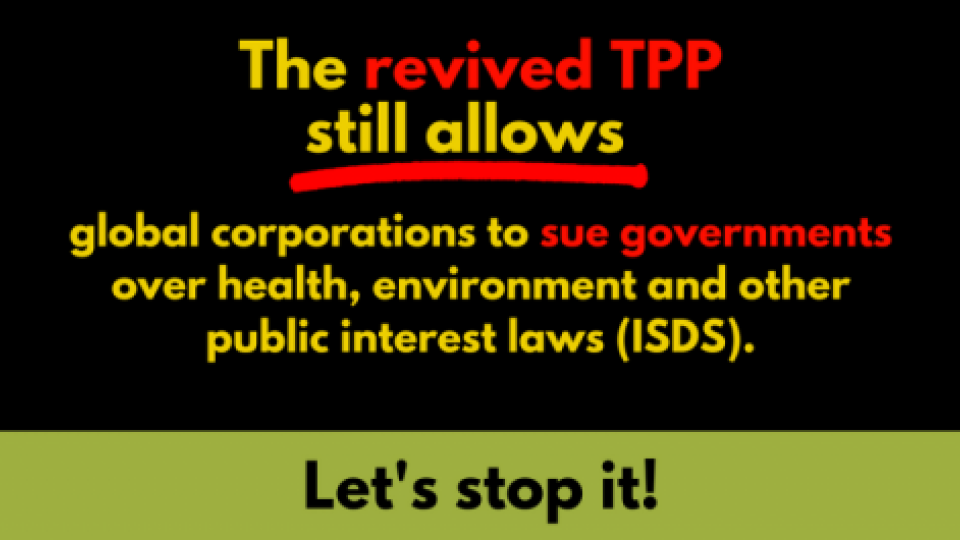Unionists break from Labor over TPP sell-out

The announcement by the Australian Labor Party’s parliamentary caucus that it will vote up the Trans Pacific Partnership (TPP-11) has created a backlash, with the secretary of Hunter Workers (formerly the Newcastle Trades Hall Council) Daniel Wallace resigning from the party.
Wallace posted a copy of his resignation letter on Facebook on September 14, commenting: “My good deed for the day ... finally realised that the shortcuts taken by the ALP usually lead to detours which lead to dead ends.
“Still some good people left in Labor but I will leave them to fight from the inside for what they believe in and I will just stick to fighting for what I believe is in the best interest of workers.”
Speaking to Wallace on September 19, he told me that since resigning he has received many messages of support from unionists.
He explained how the parliamentary caucus had simply run rough shod over party members: “National conference made a decision that the TPP would not be ratified unless it met key conditions. [But] the caucus has overruled the rank and file and the ALP’s national platform to support it.”
The caucus’ announcement also pre-empted the conclusion of two separate Senate inquiries into the TPP-11 bill.
Labor leader Bill Shorten tried to play down the back-flip in an interview with Barry Cassidy on ABC’s Insiders on September 16, saying: “What we’ll do is cooperate to see the positives implemented and we’re going to change the negatives if and when we get elected...
“What I’m not going to do is just oppose everything full stop.”
From the perspective of enriching the capitalist class and multinational corporations, Shorten is correct that the TPP-11 has a lot to offer.
But from the perspective of workers, unions, the environment and the health sector, it is a dangerous deal.
The Australian Fair Trade and Investment Network (AFTINET) has accused Labor of going against its own policies by supporting a trade agreement that includes controversial investor-state dispute settlement (ISDS) provisions that enable giant corporations to sue governments over laws that seek to protect people and the environment.
ISDS provisions in trade agreements have also led to countries being challenged for their right to deal with compensation claims against big polluters.
Wallace voiced concerns over the power granted to big pharmaceutical companies under trade agreements to block the sale of more affordable generic medicines and the leverage these corporations have via political donations.
“It undermines our health system”, he said.
Responding to the ALP’s parliamentary caucus announcement that it would fix the TPP-11 if it wins government, AFTINET’s Patricia Ranald said this would require difficult negotiations once the deal is ratified.
“It would have been more effective to delay implementation until such changes had been made”, Ranald said.
The Maritime Union of Australia (MUA) responded to Labor’s announcement expressing “grave concerns” on September 14.
The MUA called on its members, the broader labour movement and the community to oppose the adoption of the trade deal.
Australian Council of Trade Unions secretary Sally McManus responded to the announcement by saying “The ACTU and the union movement are disappointed by the ALP’s decision".
McManus went on to say "the ALP has now committed to serious and much-needed reforms of our trade system to make sure that future deals benefit working people and are subject to real public and parliamentary accountability.”
Wallace is sceptical of Shorten’s promises. “The ALP were given an opportunity to fix the Fair Work Act when they were elected [in 2007] but they failed miserably.
“There’s no evidence they won’t fail again with the TPP.”
It is commendable that unionists like Wallace have decided to leave the ALP to focus on organising and strengthening the union movement.
In the end, if we are going to defeat the TPP-11, abolish the Australian Building and Construction Commission (ABCC) and hold any future Labor government to account, we will need a strong, militant union movement, freed from the grip of the ALP.